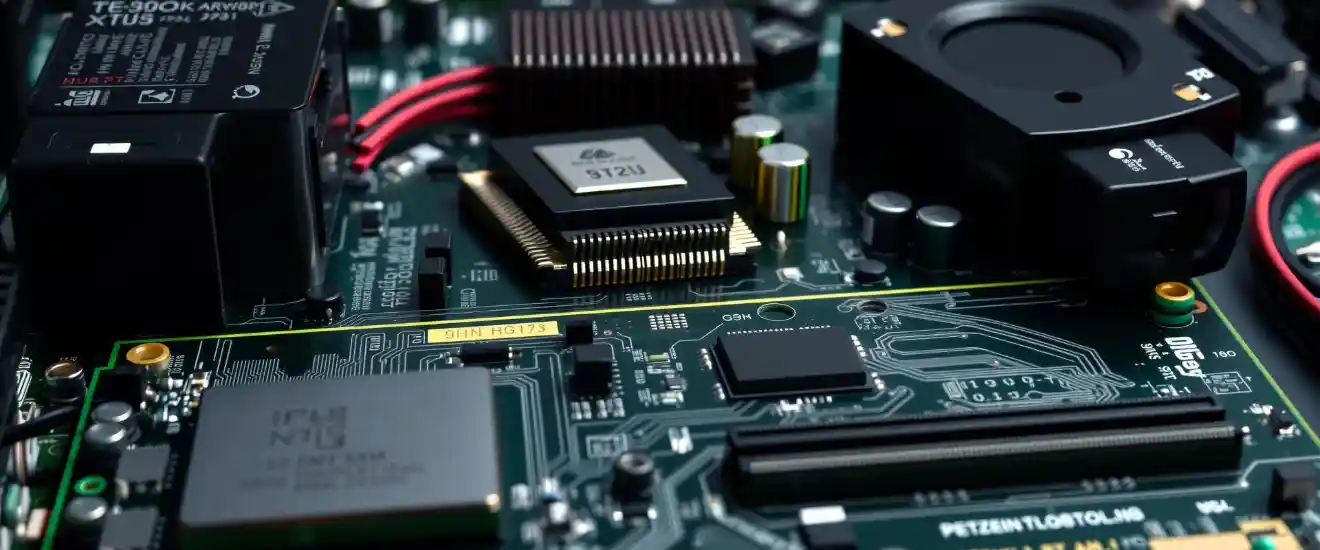When it comes to building or upgrading your IT infrastructure,
choosing the right hardware is critical. Whether you’re running a
small business or managing an enterprise, making informed decisions
about hardware components like switches, VPN gateways, firewalls, and
transceivers is essential to ensuring long-term performance,
scalability, and security.
In this blog, we’ll dive into the major aspects to consider when
purchasing hardware, along with a detailed breakdown of key
components.
Network Switches: Scalability and Performance
A network switch is vital for connecting various devices within your
network, and its efficiency directly impacts the speed and reliability
of data flow. When purchasing a switch, consider the following:
-
Port Density and Type:Ensure the switch has the appropriate
number of ports and support for necessary speeds (e.g., 1G, 10G,
40G, 100G, or 400G). You also need to assess whether you require
fiber-optic or copper-based connections
-
Managed vs. Unmanaged Switches:Managed switches allow for
greater control, enabling configuration, monitoring, and security
settings, making them ideal for larger networks.Unmanaged switches
are simpler and more cost-effective but lack advanced control
features
-
PoE (Power over Ethernet):: For devices like IP cameras and
phones, PoE switches deliver both power and data through a single
cable, reducing the need for extra wiring.
Firewalls: Ensuring Network Security
A firewall serves as the first line of defense for your network by
blocking unauthorized access and monitoring traffic.
-
Next-Generation Firewalls (NGFW):These go beyond traditional
packet filtering by inspecting applications, users, and content in
real-time. NGFWs include features like intrusion prevention systems
(IPS), deep packet inspection, and application-layer filtering to
defend against advanced threats.
-
AI and Automation:Modern firewalls often leverage AI and
machine learning to detect anomalies and proactively respond to new
threats.
-
Virtual Firewalls:: If your operations are cloud-based,
consider using virtual firewalls to protect workloads hosted on
cloud environments. These are easier to scale compared to
traditional hardware-based firewalls
VPN Gateways: Secure Remote Access
With remote work becoming more common, VPN gateways are crucial for
securely connecting employees to the company network from external
locations.
-
Encryption Standards:Ensure the VPN gateway supports robust
encryption protocols like AES-256 to secure data in transit.
-
Zero Trust Architecture:For enhanced security, look for VPN
gateways that implement Zero Trust principles, which require
continuous verification of users and devices before granting access.
-
Cloud Integration:As companies move more workloads to the
cloud, gateways that support hybrid or multi-cloud environments
become more essential for flexibility.
Transceivers: The Backbone of High-Speed Connectivity
Optical transceivers play a key role in fiber-optic networks,
facilitating data transmission between devices.
-
Compatibility:Ensure your transceivers are compatible with
the switches and routers in your network. Transceiver types like
SFP, QSFP, and QSFP-DD have different data rates and form factors,
so choosing the correct one is vital.
-
Distance and Speed Requirements:Transceivers are designed for
varying distances (e.g., short-range, long-range) and speeds (10G,
25G, 40G, 100G). Match the transceiver to the specific needs of your
network to avoid bottlenecks.
-
Future-Proofing: Opt for higher-capacity transceivers like
400G if you anticipate network growth. These transceivers can
support future expansions without requiring an entire hardware
upgrade.
Other Important Factors to Consider
When buying hardware, it’s not just about individual
components—consider the broader ecosystem and how it fits with your
operational needs:
-
Scalability:Always think ahead. Purchase hardware that can
scale with your business’s growth. Many hardware components today
offer modular options, making it easier to expand later on.
-
Energy Efficiency:Look for hardware that is energy efficient,
especially for data centers where power consumption can be
significant. Energy-efficient switches and firewalls can reduce
long-term operational costs.
-
Redundancy and Failover:Ensure critical hardware like
switches and firewalls have redundancy options (e.g., dual power
supplies) to minimize downtime in case of failure.
-
Vendor Support:After-sales support is crucial, especially
when dealing with sophisticated hardware. Choose vendors known for
excellent technical support and firmware updates to address evolving
cybersecurity challenges.
Conclusion
Investing in the right hardware is crucial for ensuring that your
business’s IT infrastructure is secure, efficient, and scalable. From
choosing the right switch to ensuring robust network security with
firewalls and VPN gateways, understanding your business needs and
future growth is essential to making informed hardware decisions.
Additionally, keeping an eye on future technologies and trends, such
as AI integration and next-gen high-speed networking, can further
bolster your company’s operational effectiveness.
Ensure that your network hardware choices align with your business
strategy for today and tomorrow, and you’ll build a solid foundation
for sustained growth and innovation
By considering these factors, your business can effectively navigate
the complex landscape of hardware selection, ensuring that you are
well-prepared for both current operations and future expansions.
